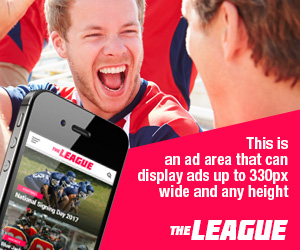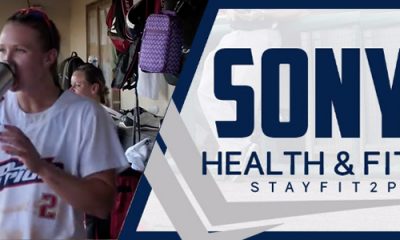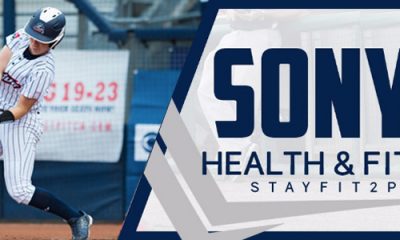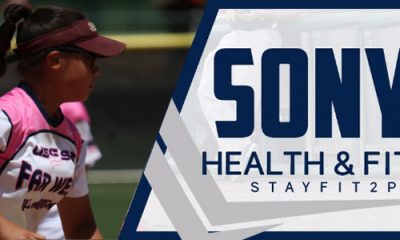
Courtesy of BrokenSphere, Wikimedia
Probably one of the most serious injuries that occur during organized sports are concussions. Often times for parents and coaches, it is more difficult to identify the injury and know its severity. Unlike a broken bone or a sprained ankle that is visually easier to identify, a concussion can be less obvious to the untrained eye. Concussions are caused when the head is struck, and the force of the blow causes the brain jostled within the skull. With concussions most people think of an extreme play in hockey or football where an athlete is laid out and appears unconscious. There is actually more variance to concussion symptoms than the extreme, and its important for parents and coaches alike to be aware of how to identify these signs and symptoms in their athletes. While I think its ideal to have an athletic trainer at every sporting event in case injuries occur the reality is that’s not always the case. Therefore, it is even more important for coaches and parents to educate themselves on concussions..
Generally medical professionals refer to concussions as mild Traumatic Brain Injuries or mTBI’s. It is estimated 300,000 mTBI’s occur each year related to organized sports. Therefore, if you suspect your child has a concussion it’s a good idea to have them examined by a medical professional as soon as possible. Often with concussions not all the symptoms will occur immediately but may present themselves progressively following the initial hit. Basically when in doubt remove the athlete from play and if symptoms get progressively worse take them to the ER for further evaluation. Proper documentation of concussions are ideal for your athlete who may need further evaluation if the injury occurs again at a later time.
Remember as coaches and parents it is never “popular” to remove any athlete from competition but irreversible brain damage and death have occurred with concussions that have not been identified or given proper time to resolve. The term Second Impact Syndrome occurs when an athlete returns to play too soon from a concussion and receives a blow to the head causing death or serious brain damage. Also, there is no distinct timeline for an athlete who is recovering from concussion since everyone’s body reacts differently to the injury. The saying less is more, often is the phrase I use when talking to coaches and parents about physical activity when dealing with a concussed athlete. Athletes, especially the younger ones need more rest and time off since their brains are still developing. An athlete needs to be completely symptom free and should see a medical professional to clear them before returning to any type of physical activity. Return to play should be gradual for these athletes so they may acclimatize themselves to the pace of the game. Here are some ways to help identify concussion symptoms in athletes and what they may tell you after one has occurred.
Signs to look for when identifying athletes with a concussion:
- Any loss of consciousness
- Vomiting
- Confusion
- Inability to focus- attention and visually
- Athlete appearing withdrawn or not like themselves
- Pupils that are unequal or appear to be not to be moving normally
- Memory recall issues: present and past
- Mood or personality changes
What an athlete might tell you if they’ve sustained a concussion:
- Ringing in their ears
- Dizziness or unable to balance
- Nausea
- Headache
- Sensitivity to light and sounds
- Blurry or double vision
- Feeling groggy or extreme sleepiness
What to expect after an athlete sustains a concussion:
- Difficulty doing class work- ask teachers for extensions on assignments if your child has difficulty completing tasks in a timely manner
- Decrease tv viewing, texting, and playing video games- these can often cause increases in concussion symptoms
- Refrain from giving your child any Ibuprophen for headaches during the initial 24hrs of the injury unless directed by a medical professional-acetaminophen is often acceptable
- Difficulty sleeping
- Loss of appetite
Follow Sonya on Twitter: @SonyaMontoya2
About USSSA Florida Pride:
The USSSA Florida Pride is a professional franchise in the National Pro Fastpitch League that is owned and operated by USSSA. The amateur organization of USSSA has multi-sport coverage and encompasses teams and players from the United States and abroad.
About NPF:
National Pro Fastpitch is headquartered in Nashville, TN. The league, created to give elite female fastpitch players the opportunity to pursue a professional career in their chosen sport, has operated since 1997 under the names of Women’s Pro Fastpitch (WPF) and Women’s Pro Softball League (WPSL). NPF is the Official Development Partner of Major League Baseball in the category of women’s fastpitch softball since 2002.
About USSSA:
The United States Specialty Sports Association (USSSA), headquartered in Osceola County, Florida, USSSA is the World’s Largest Multi-sport Athletic Organization. Founded in 1968, USSSA has grown to over 3.7 million participants, competing in 13 nationally sanctioned sports including Baseball, Fastpitch, Slow Pitch, Karate, Basketball, Soccer and more! For more information on USSSA and to register your team visit USSSA.com. Also be sure to visit USSSAToday.com for the latest USSSA News!












You must be logged in to post a comment Login